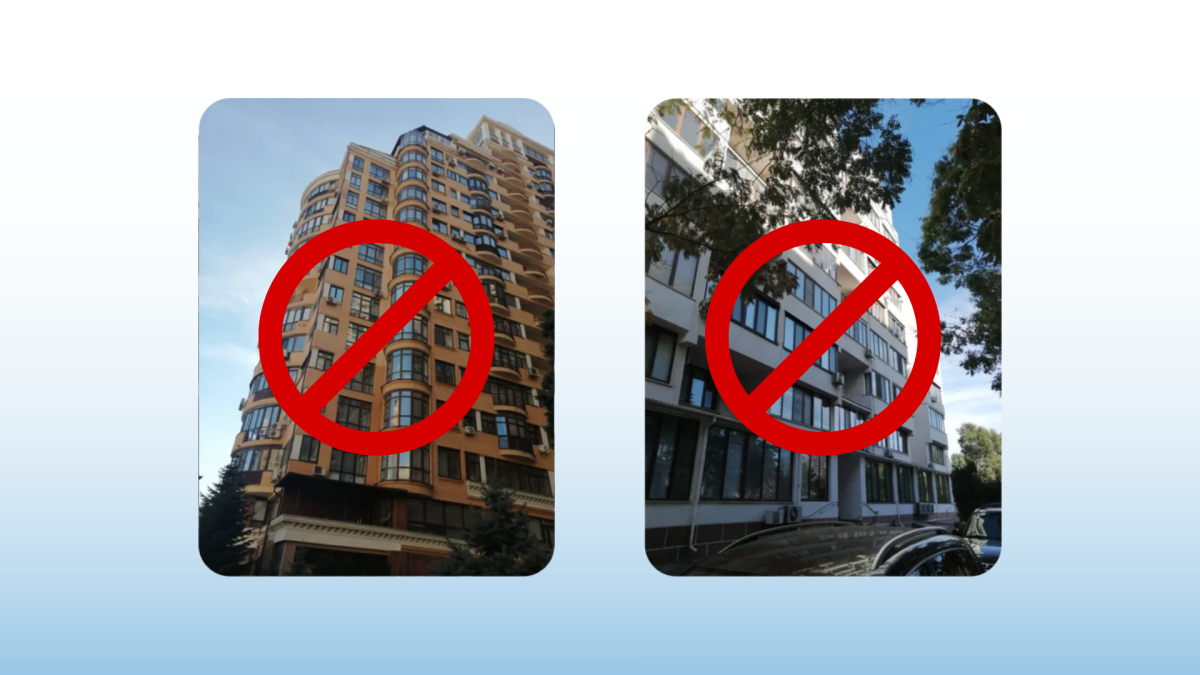

The auctions for the sale of apartments that belonged to the collaborator Saldo and the Russian oligarch Shelkov, scheduled for April 17, did not take place because no one desired to participate in them.
Now the organizer must announce new auctions within 10 days, with a 50% reduction in the starting price.
Back in March, the State Property Fund announced the sale of two similar lots at once: apartments in prestigious districts of Odesa worth UAH 3.74 and 7.52 million. One of them belonged to the former MP and now collaborator, Volodymyr Saldo. The other belonged to Russian oligarch Mikhail Shelkov. A week before the auction, the SPFU even organized an “open day” for the media at the sites, but in the end, none of the apartments found a buyer.
Perhaps debts for utilities and a new boiler house, which exceeded UAH 50,000, turned out to be an obstacle. However, most likely, other factors caused this situation.
The first one concerns security: the enemy continues to shell residential areas of Odesa, which hardly encourages purchasing elite real estate there.
The second, a more threatening one, is investors’ distrust of the background of such assets, which is associated with a relatively new mechanism of confiscation and the risks of its appeal by the former owners.
This is the third attempt to find a buyer for the former assets of Shelkov and Russian assets in general. The previous two auctions for the sale of the agricultural enterprise Investagro in Dnipro Oblast last year also ended without success, in particular due to the lack of interest from investors.
It is important that the key legislative obstacle to the sale of confiscated sanctioned assets has already been removed. In mid-February, the Verkhovna Rada corrected its own mistake, which provided for the possibility of selling assets only if they belonged to their former owners. This made it impossible to sell assets because confiscation implies the termination of ownership.
So now it is obvious that the problem is related to the assets themselves. Investors need additional guarantees from the state so that, in any case, they are not left without property or can count on reimbursement of expenses for its acquisition.
There are such guarantees in Ukrainian legislation. Article 388 of the Civil Code provides that public property sold to a bona fide acquirer through privatization at an electronic auction cannot be claimed by the previous owner. The sale of confiscated companies and shares in them, as in the case of the Ocean Plaza shopping mall, will be carried out in the order of privatization, so they will also be covered by such a guarantee. Therefore, it is important to communicate this information before the sale.
However, some assets, including unsold apartments in Odesa, will be sold at electronic auctions, but in an order other than privatization. This applies to certain property that was transferred to the balance sheet of state-owned enterprises from the SPFU management sphere. Such property is not covered by the guarantees provided for in Art. 388 of the Civil Code. Therefore, legislators and the government should consider this and correct it in future legislative initiatives to increase investor confidence in the confiscated assets.
In addition, the risks associated with the confiscation mechanism persist. Although it is preceded by a trial, too short a term for filing a revocation of the claim and appealing the decision of the first instance may become the basis for recognizing the trial as inconsistent with Art. 6 (right to a fair trial) and Art. 13 (right to an effective remedy) of the European Convention on Human Rights.
Unfortunately, the lack of buyers at auctions for the sale of confiscated assets is no longer an accident, but a trend that is becoming threatening. The state continues to accumulate former Russian assets (more than 1,130 objects have already been confiscated) and is forced to bear the costs of maintaining and managing them while not receiving income from sales. This was the main purpose of such confiscation of (pro-)Russian property.
It is through the sale of sanctioned assets that the remediation fund should be filled, which covers the country’s costs for the restoration of social infrastructure, protection of critical infrastructure, construction of shelters, and compensation to Ukrainians for damaged housing. We did not get funds that would work in favor of Ukraine but ended up with assets that are gradually becoming a burden.
Therefore, while expecting decisive steps the partner countries to confiscate and sell the enemy’s property, it would be good to show that Ukraine itself has some real achievements in this area. To this end, investment attractiveness of assets should be improved, including in the legislative field.
This publication was prepared by Transparency International Ukraine with the financial support of Sweden.
So now it is obvious that the problem is related to the assets themselves. Investors need additional guarantees from the state so that, in any case, they are not left without property or can count on reimbursement of expenses for its acquisition.
Andrii Shvadchak






